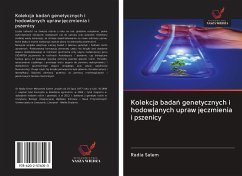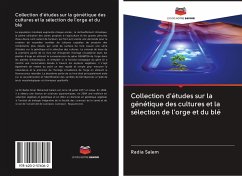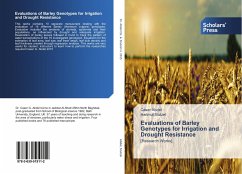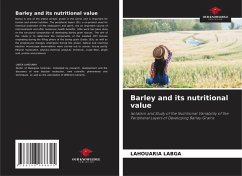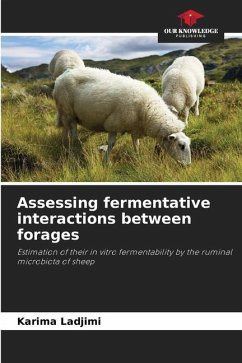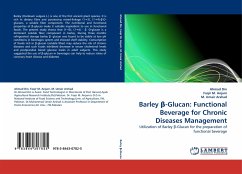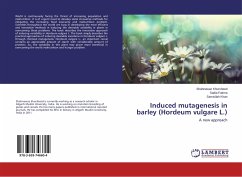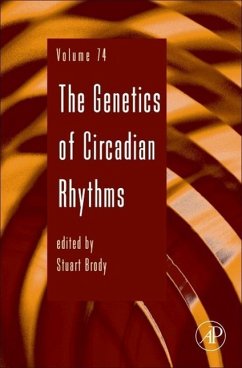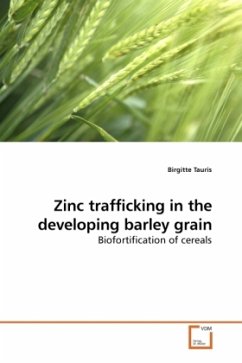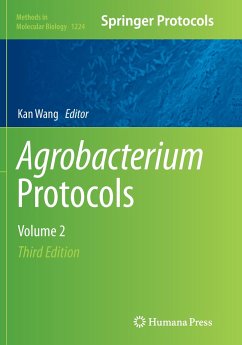
Collection of study in crop genetic and breeding barley and wheat
Versandkostenfrei!
Versandfertig in 6-10 Tagen
30,99 €
inkl. MwSt.

PAYBACK Punkte
15 °P sammeln!
The world's population increases every year; global warming, full use of areas suitable for agriculture, and severe shortages in fresh water all mean there is demand to create new crop varieties that are able to produce higher yields per unit area.This book covers a range of studies in crop genetic and breeding. The basic concept of the first part of this book is to inspect circadian clock in barley plants using Over-expression of barley GIGANTEA gene in Arabidopsis plants, and investigate whether the biological function of the GI gene exhibited high conservation through plant species. Also, d...
The world's population increases every year; global warming, full use of areas suitable for agriculture, and severe shortages in fresh water all mean there is demand to create new crop varieties that are able to produce higher yields per unit area.This book covers a range of studies in crop genetic and breeding. The basic concept of the first part of this book is to inspect circadian clock in barley plants using Over-expression of barley GIGANTEA gene in Arabidopsis plants, and investigate whether the biological function of the GI gene exhibited high conservation through plant species. Also, development of a rapid and simple clock assay for measuring robustness and accuracy of the barley circadian clock by using delayed fluorescence. The second part of this book was mainly focused on Libyan wheat variety characterization and identification using morphological and qualitative chemical tests. The information about the extent of genetic diversity among crop genotypes could extended prospects for genetic improvement programs and the effective utilization of plant materials, and also conservation and management of crop germplasm resources in Libya.



